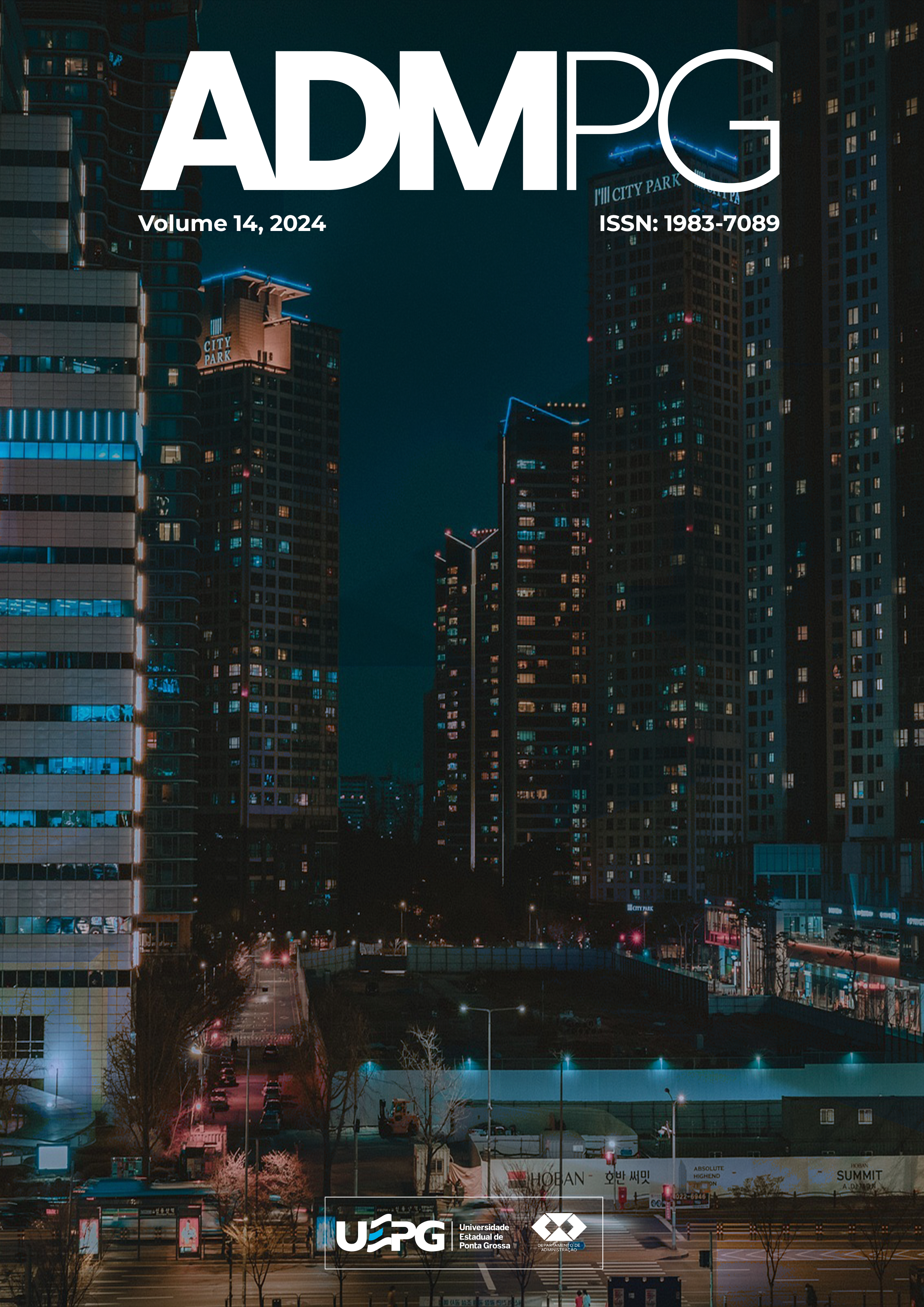COMPREENDENDO O LOCAVORISMO A PARTIR DA TEORIA DO COMPORTAMENTO PLANEJADO DECOMPOSTO
DOI:
https://doi.org/10.5212/Admpg.v.14.22111.001Resumen
El objetivo de este artículo fue comprender la intención de comportamiento y el comportamiento de los consumidores en relación con el Locavorismo basado en la Teoría del Comportamiento Planificado Descompuesto (TCPD). La investigación se caracteriza como descriptiva cuantitativa. La recolección de datos fue a través de la aplicación de un cuestionario en línea con preguntas del perfil de los participantes y las escalas referentes a los constructos TCPD, y se realizó mediante el envío del enlace a los grupos de Whatsapp para la compra de productos locales en la ciudad de Rio Paranaíba. -MG y Viçosa-MG, en las redes sociales de las ferias locales de productores de alimentos y en las redes sociales de los investigadores. La muestra final de la investigación estuvo compuesta por 288 participantes. Para probar las hipótesis de investigación y validar el modelo TCPD, se utilizó la técnica de Modelado de Ecuaciones Estructurales. Los resultados encontrados indican que el Locavorismo está influenciado por las actitudes del consumidor y, principalmente, por el Control Conductual Percibido. Así, cuanto más positiva sea la actitud de las personas hacia el consumo de alimentos locales y mayor sea la percepción de facilidades de acceso y habilidades en el uso de este tipo de alimentos, mayor será la intención de compra y consumo de alimentos producidos localmente.
Descargas
Descargas
Publicado
Cómo citar
Número
Sección
Licencia
Derechos de autor 2023 Ana Luiza Leonel Borges, Gilberto Venâncio Luiz

Esta obra está bajo una licencia internacional Creative Commons Atribución 4.0.
Los autores que publican en esta revista aceptan los siguientes términos:
a) Los autores conservan los derechos de autor y otorgan a la revista el derecho de la primera publicación, con el trabajo licenciado simultáneamente bajo la Licencia Creative Commons Attribution License que permite compartir el trabajo con el reconocimiento de su autoría y publicación inicial en esta revista.
b) Los autores están autorizados a firmar contratos adicionales por separado para la distribución no exclusiva de la versión publicada en esta revista (por ejemplo, en repositorios institucionales o capítulos de libros), con reconocimiento de su autoría y publicación inicial en esta revista).
c) Se alienta a los autores a publicar y distribuir la versión en línea del artículo (por ejemplo, en repositorios institucionales o en su página personal), ya que esto puede conducir a cambios productivos, así como aumentar el impacto y las citas del artículo publicado.
d) Esta revista proporciona acceso público a todo su contenido, ya que esto permite una mayor visibilidad y alcance de los artículos publicados. Para obtener más información sobre este enfoque, visite el Public Knowledge Project, un proyecto que desarrolló este sistema para mejorar la calidad académica y pública de la investigación mediante la distribución de OJS y otro software que respalda el sistema de publicación disponible públicamente a fuentes académicas.
Este trabajo está licenciado bajo una Licencia Creative Commons Atribuição 4.0 Internacional.






